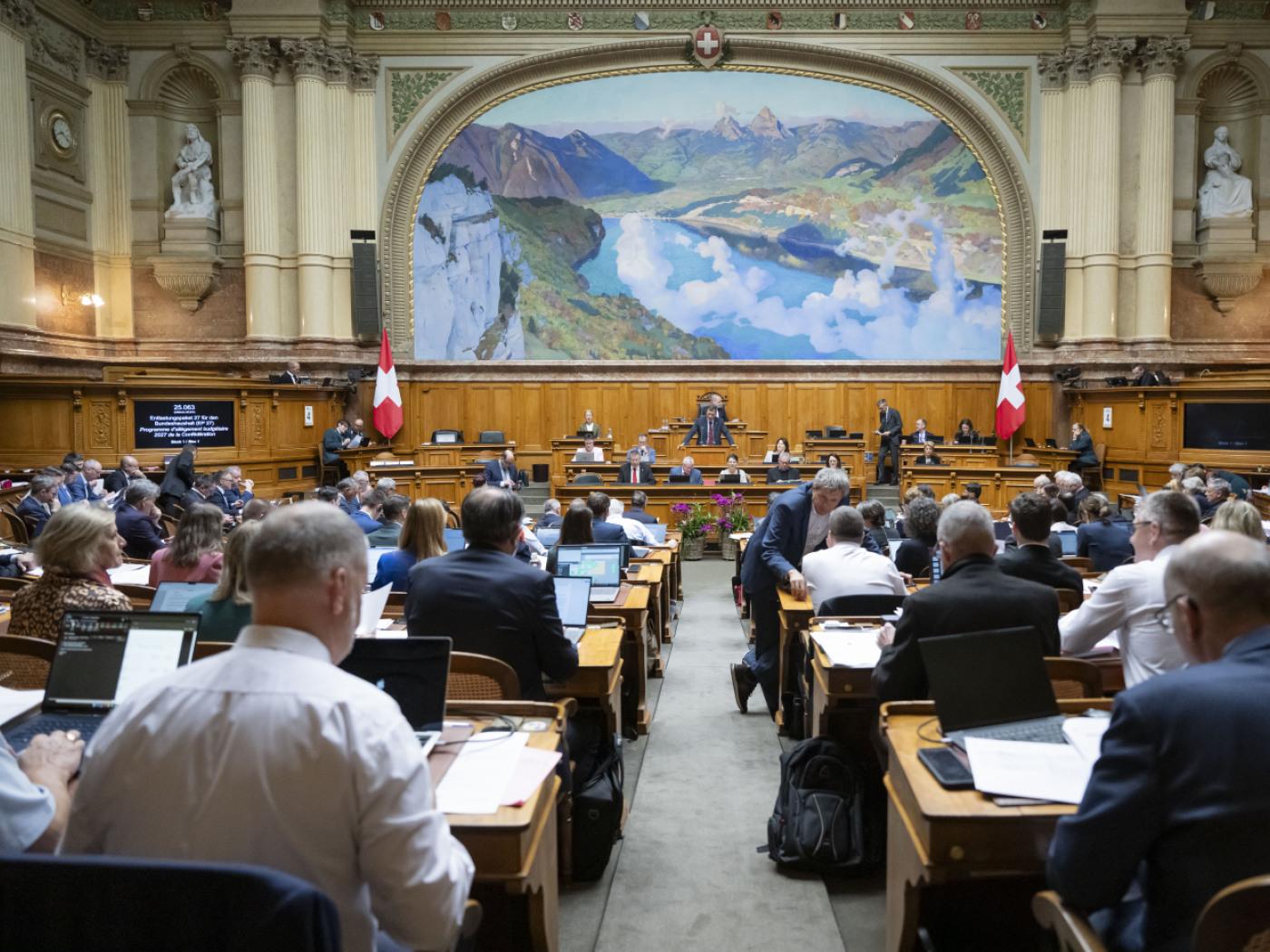Trump and Biden cannot wait to send more assistance to Ukraine
The most recent presidential debate allowed American voters to compare the policies and rhetoric of President Joe Biden and former President Donald Trump. There was a lot of posturing and insulting, but below it all were comments on foreign policy which must be addressed. With roughly two and a half years of large-scale fighting between Russia and Ukraine, increasing tension between Taiwan and mainland China, and a conflict between Israel and its Palestinian neighbors which seems to be never-ending, foreign policy should be of paramount importance to the American electorate.
The United States has not awakened to the reality of a multipolar world; neither have many of its allies. Rather than funding their own defense, Israel, Taiwan, the Philippines, Japan, and the European Union want the United States to consistently subsidize their defense budgets in ways that are no longer sustainable. As long as American debt and levels of inflation are increasing, politicians in Washington have no business promising billions in aid to countries around the world.
The China question has been difficult for America to address ever since Richard Nixon reopened diplomatic relations in 1972. On one hand, an economic collapse of China would be detrimental to the United States, as would an all-out war in the Taiwanese Straits. China owns a large amount of U.S. debt, and the yuan is pegged to the dollar. Additionally, China is a large trading partner, being America’s third largest partner as of 2021. The American consumer greatly enjoys relatively affordable goods from China, and the Chinese economy benefits from being a source of these goods. When it comes to Taiwan, a full-on invasion from China would be illogical and painful. The straits of Taiwan reach a max depth of 230 feet, with a steep mountain range running down the middle. Additionally, Taiwanese soldiers have been specifically training for an invasion for years. Taiwan also hosts a large amount of the world’s semiconductor manufacturing capabilities. A serious invasion would likely damage these manufacturing facilities and pause production for a considerable amount of time. From a logistics standpoint, an invasion would be extremely costly.
An American war with China would be even more costly and complicated. While America does have fleets stationed in the Pacific, it would take weeks to consolidate the necessary vessels. War games run with the United States, Japan, and Taiwan facing off against China do usually result in a loss for the mainland but at a very high cost for the United States. America would likely lose dozens of ships and hundreds of aircraft. These losses would shift America’s global position for years to come.
Trump and Biden have both participated in economic warfare against Beijing, but these actions have not done much beyond harming the U.S. economically. Instigations against the Chinese Communist Party have so far only served to embolden China. For example, Beijing reacted to American Speaker of the House Nancy Pelosi’s visit to Taiwan by dispatching military aircraft and vessels around the island and by firing missiles into the waters. Increased American instigation will only open the door for Putin to cooperate further with Xi Jinping. China and Russia have very different cultures and different strategic interests. They have, however, been forced to work together when the West leaves them no choice. Billions of American aid sent to Taiwan will only draw Russia and China together. The Philippines, Japan, Australia, and Taiwan must begin to act as though the United States will not always subsidize their defense capabilities.
When it comes to the Middle East, America has taken a slight step back. Boots on the ground in Syria and Iraq have been reduced greatly, but American bases still abound in the region. Additionally, the United States is still involved in bombing campaigns and in buying allies with billions of dollars in aid. Former President Trump does deserve credit for beginning the process of removing America’s presence from Afghanistan, and President Biden deserves credit for following through. This does not excuse either from their other actions in the Middle East and Central Asia.
President Trump was notably aggressive toward the Iranian regime, even as Tehran was headed toward diplomatic normalcy. In 2016, Iran had taken steps to restrict its nuclear capabilities under Obama’s nuclear Joint Comprehensive Plan of Action; additionally, sanctions were lifted. Then in 2018, President Trump falsely claimed that Iran was no longer complying to the deal and decided to unilaterally exit the deal. He also placed crippling sanctions on Tehran again. In 2019-2020, the Trump administration designated part of the Iranian military as a “terrorist organization” and directed the assassination of high-ranking General Qasem Soleimani without congressional approval or a declaration of war. These actions were evidence of the Trump administration walking the United States into a stronger relationship with Saudi Arabia and away from any potential diplomatic neutrality. Similarly, Trump gave great preference to Benjamin Netanyahu’s government in Israel, declaring Jerusalem the capital of Israel and recognizing the occupied Golan Heights as part of Israel’s legal territory.
Biden cannot claim to be much better in this region. He has repeatedly asked the Prime Minister of Israel not to cross certain redlines when it comes to the invasion of Gaza, but Netanyahu has refused to comply. Instead of removing support, the president has continued to support Israel through weapons and billions of dollars in aid. Both presidents claim to have performed better than the other in the region, but we can see that both have continued to increase tension and ensure that America remains entangled in various alliances.
Many Republicans are optimistic and believe that the United States may begin to remove itself from the Ukraine-Russia conflict. The Republican Party has paid lip service to this idea but has not shown that this will be the case. Former President Trump did deliver aid to Ukraine during his presidency and has signaled that he will not accept Putin’s terms to end the war if elected in November. Trump may be more willing to hold NATO members to their defense spending quotas, but he has not showed a willingness to truly put America first on the world stage.
On Ukraine, Biden has gone as far as he can go without putting troops on the ground. We know that the United States helped to convince Ukrainian President Volodymyr Zelenskyy to refuse a peace deal with Putin in 2021 and that Biden and the West have held on to a total defeat/total surrender dynamic when it comes to the war. This combined with over $100 billion in aid still being given to Ukraine makes it hard to imagine a scenario where the conflict ends anytime soon, regardless of who is president. It is becoming increasingly obvious that Ukraine will not win the conflict without a NATO force on the ground. Americans must determine if they would like the United States to become militarily involved in this conflict, or if the U.S. should remove itself from the situation altogether.
The most recent presidential debate should not instill hope in most voters. Neither president seems to recognize the obvious lessons of past mistakes or the realities of international intervention. Rather than consistently putting American interests first, both have largely continued to act according to the wishes of other nations while giving hundreds of billions in aid and military equipment. This seems to be a last-ditch effort to maintain a unipolar world, with the United States at the top. Unfortunately, this is likely a lost cause. With American debt costs spiraling out of control and China facilitating effective diplomacy in Africa and the Middle East, the next president should accept the realities of a multipolar world and embrace a restrained, America-first foreign policy. It remains to be seen if either of the current front-runners are ready to act accordingly.
Full story here Are you the author? Previous post See more for Next postTags: Featured,newsletter





















